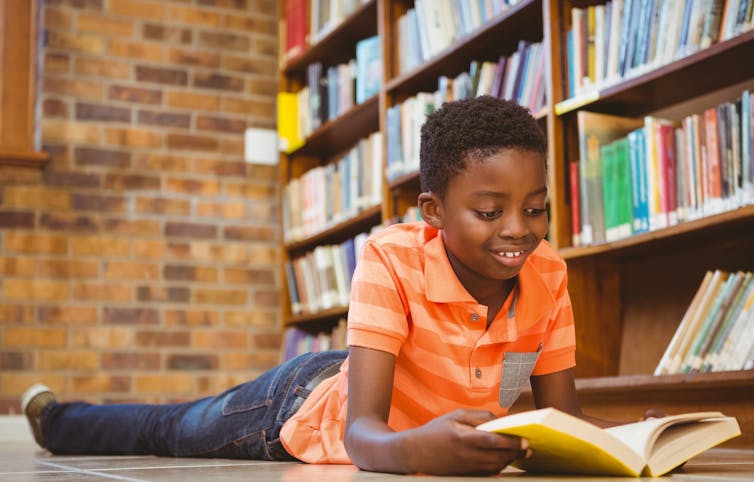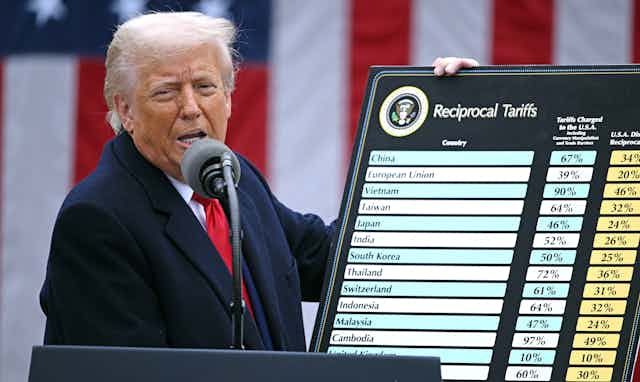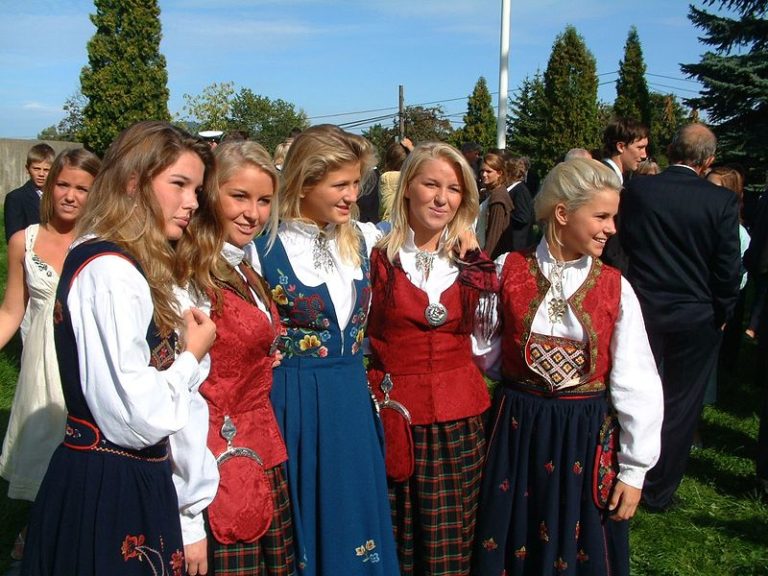
England international footballer and child poverty campaigner Marcus Rashford has announced that he is launching a book club. The initiative will distribute books to children, particularly those from vulnerable and underprivileged backgrounds, in order to promote reading and literacy.
Studies have shown us how vital reading – specifically reading for pleasure – is for academic and economic success, as well as for mental health (among other things). Reading, according to the National Literary Trust, encourages children (particularly girls) to dream about the future.
But the number of children reading every day for pleasure is at its lowest since the National Literacy Trust started monitoring it in 2005. In 2019, only 26% of young people (under 18) read every day. Although engagement with books has risen during the lockdown, some children have faced greater barriers due to library closures, amongst other things.
Former children’s laureate Michael Rosen has said these findings should act as “a wake-up call for the government”. And we already know that Rashford can cause a stir at Westminster. So his intervention could become a much-needed force for change.
Rashford says that reading and books are cool. Children who own books are more than twice as likely to agree that reading is cool than those who don’t. But what if you don’t have access to books, like 384,000 children and young people (mostly from disadvantaged backgrounds) in the UK? And, more specifically, what if you don’t have access to books that you can see yourself in?
Reading is cool. Books are cool.
That’s it. That’s the tweet 📚
— Marcus Rashford MBE (@MarcusRashford) November 18, 2020
My own research, along with that of the Reflecting Realities project by the
Centre for Literacy in Primary Education, has also demonstrated how woefully underrepresented people of colour are in children’s books and children’s authorship. A few weeks ago, my new BookTrust Represents report was published in conjunction with the new Centre For Literacy In Primary Education (CLPE) report, which tracks the number of children’s books by and about people of colour published in the UK.
Read more:
Five books to read to children that adults will enjoy
Both reports show progress over the past three years (2017-2019): the number of protagonists of colour increased fivefold, from 1% (2017) to 5% (2019), while the number of authors of colour increased from 5.58% to 8.68%.
It is important to stress that these numbers are still very low, particularly when we consider that 33.5% of school-age children in the UK are from ethnic minority backgrounds. There is a long way to go before representation in children’s books and publishing authentically mirror UK society. And it will take collective action to break down the systemic barriers that cause under- (and mis-) representation.
Reaching a wider audience
This is why initiatives like Rashford’s book club are very welcome. In light of my research, I support the book club’s focus on quality inclusive youth literature: books that are authentically representative of the society that we live in. “No matter where you grow up”, Rashford wrote in a statement, “talent should be recognised and championed”.
A little bit more info 📚
Thank you for being on this journey with me @MacmillanKidsUK ♥️ pic.twitter.com/pHRhOoJoKK— Marcus Rashford MBE (@MarcusRashford) November 17, 2020
Books provide insight into a variety of different lives and cultures. They have an important role in holding up a mirror to the world or offering a window into another. What they reflect impacts how young readers see themselves and the world around them. Inclusive books are important for children of all ethnicities and from all socio-economic backgrounds.
This new book club, with Rashford at the helm, will bring inclusive books into the consciousness of a much wider audience. Rashford has already made strides in tackling inequality in the UK and this initiative will help bridge the cultural and educational divide.
Rashford will also co-author several books, in partnership with MacMillan Children’s Books, beginning with You Are A Champion: Unlock Your Potential, Find Your Voice And Be the Best You Can Be, based on Rashford’s life (May 2021). Two books, aimed at children over six, will follow in 2022. This age group is significant because it covers a critical period in academic development where there is often a decline in children reading for pleasure.
In May 2021 we will publish YOU ARE A CHAMPION: Unlock Your Potential, Find Your Voice and Be the BEST You Can Be by @MarcusRashford. This book will show young people aged 11-16 how to develop resilience, navigate adversity and discover the unstoppable power of their own voice pic.twitter.com/ql03mcLzSJ
— Macmillan Children’s Books (@MacmillanKidsUK) November 17, 2020
Rashford can now add author and cultural gatekeeper to his list of accolades, and, by centring himself as such, will be a role model to aspiring writers and publishers – something my previous BookTrust Represents report highlighted as an enabler for young people of colour to join the industry.
Don’t forget about existing authors, books, and publishers
While this intervention by Rashford is exciting, it’s important to acknowledge the activists, authors, publishers, and booksellers that have been supporting inclusive youth literature for decades. Bookshops and supermarket bookshelves may be dominated by bestselling and celebrity books, but other books, with smaller marketing budgets abound. Here are five of my favourite books for young people (published in 2020), by British authors of colour, to tide you over until Rashford’s book club begins next year:
- The Infinite by Patience Agbabi: A time-travelling mystery and adventure by a much-celebrated poet.
- When Secrets Set Sail by Sita Bramachari: Another magical book, on a hidden part of Indian history, by this stalwart author.
- The Girl Who Became a Tree: A Story Told in Poems by Joseph Coelho: Ancient legends and modern-day grief merge in this book in verse.
- Boy, Everywhere by A M Dassu: A beautifully written debut about the plight of Syrian refugees.
- When Life Gives You Mangos by Kereen Getten: Another dreamy debut about friendship, loss, and small-town life.

Melanie Ramdarshan Bold, Associate Professor of Publishing and Book Cultures, UCL
This article is republished from The Conversation under a Creative Commons license. Read the original article.




3 Comments
Pingback: relaxing music
Pingback: buy dmtin New South Wales,
Pingback: deneme bonusu veren siteler